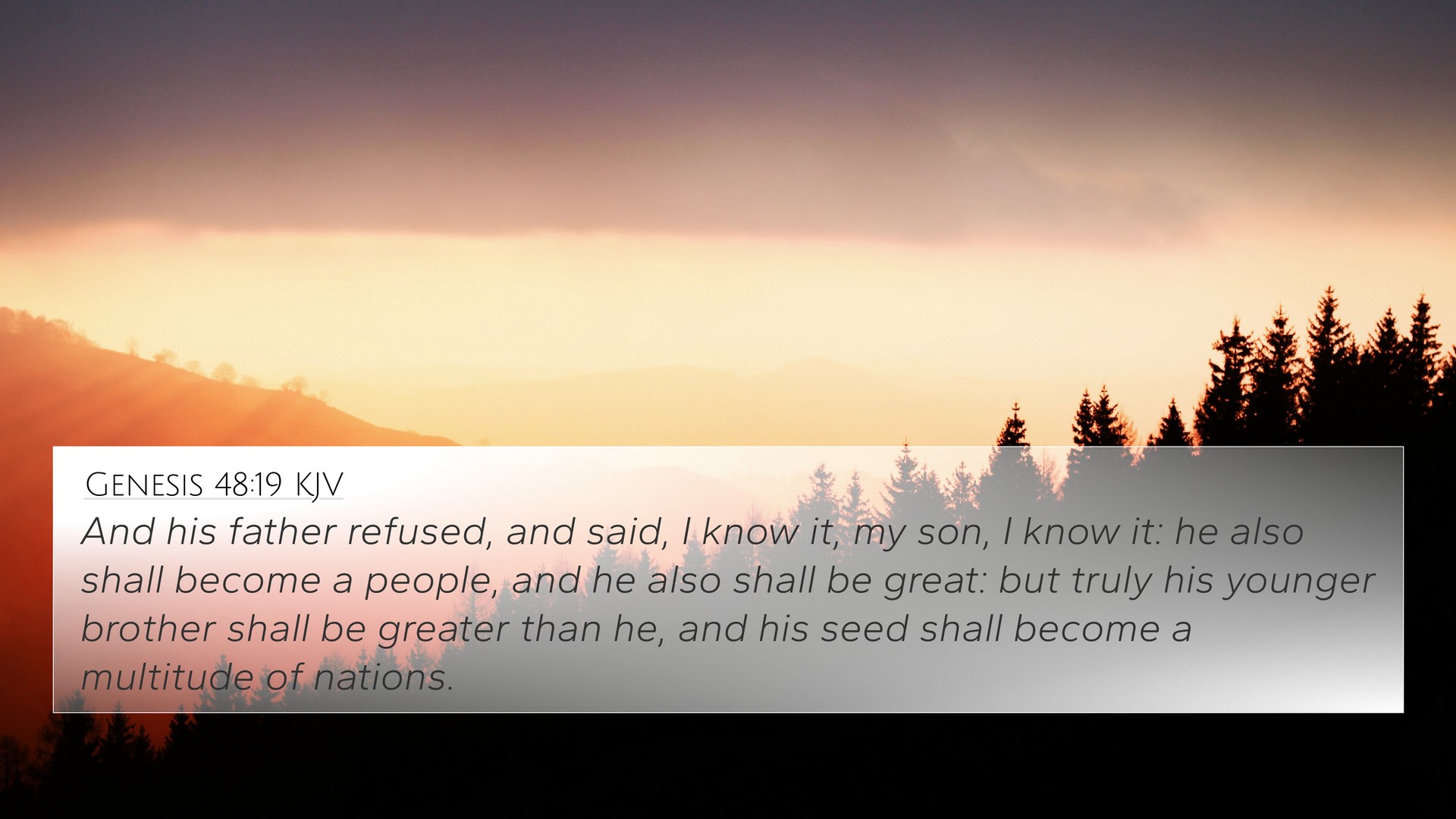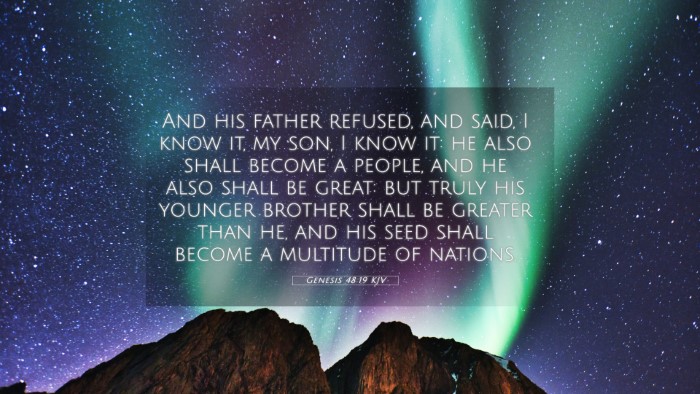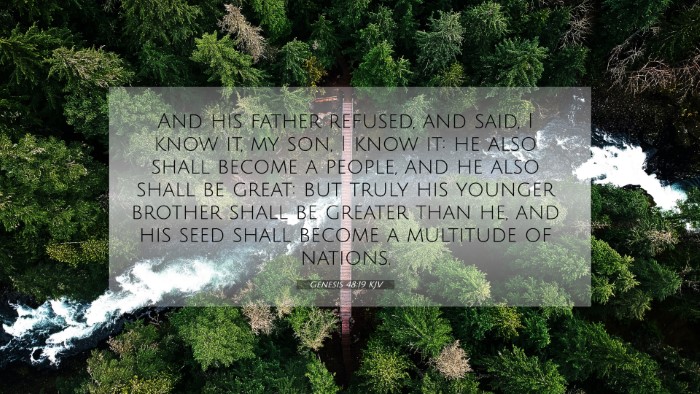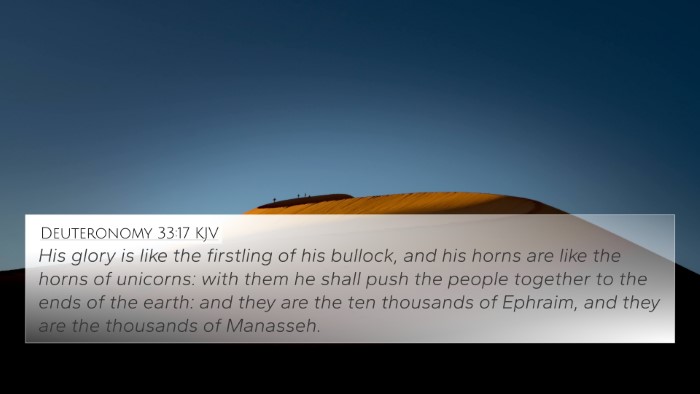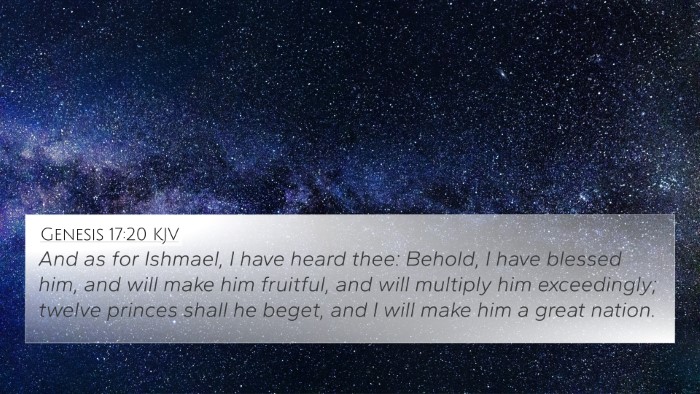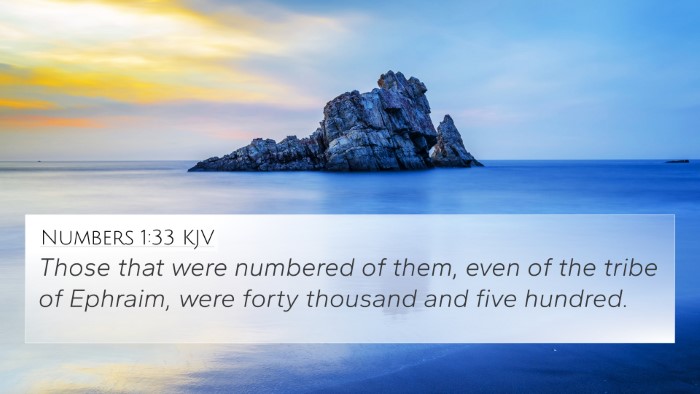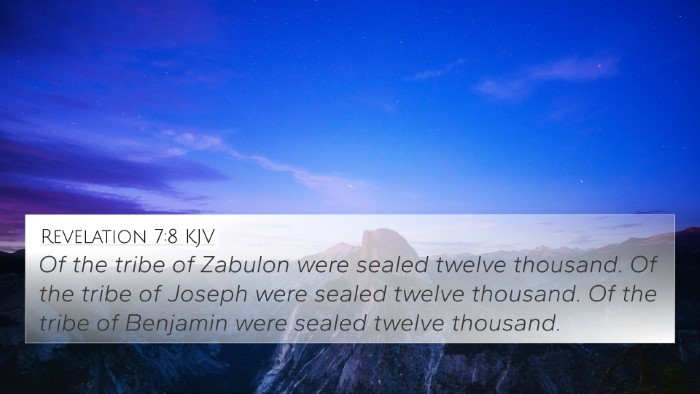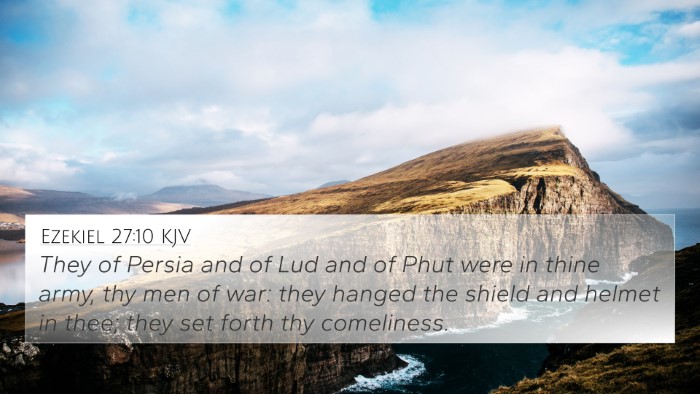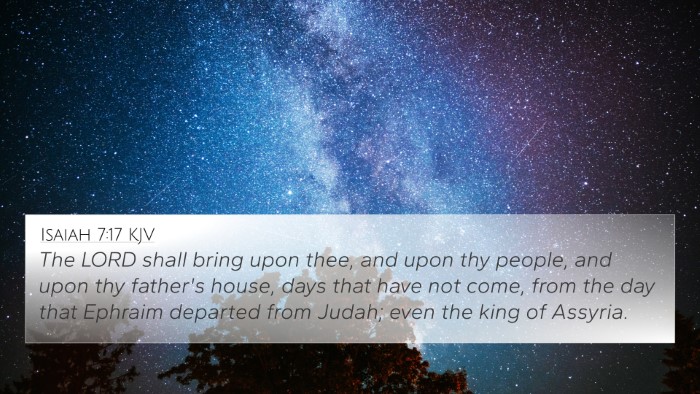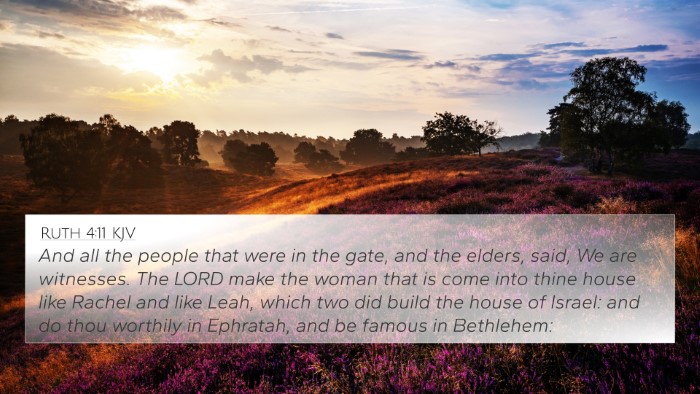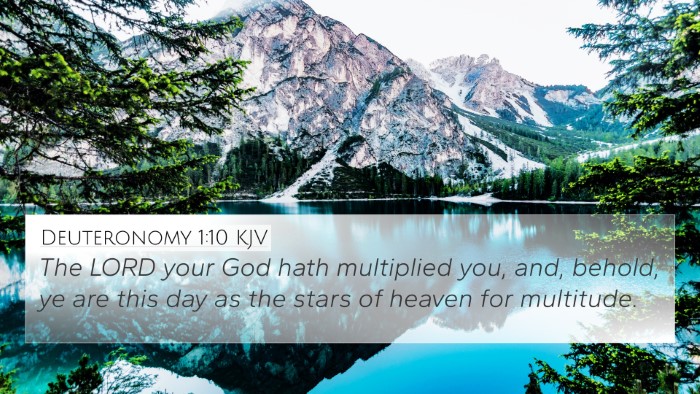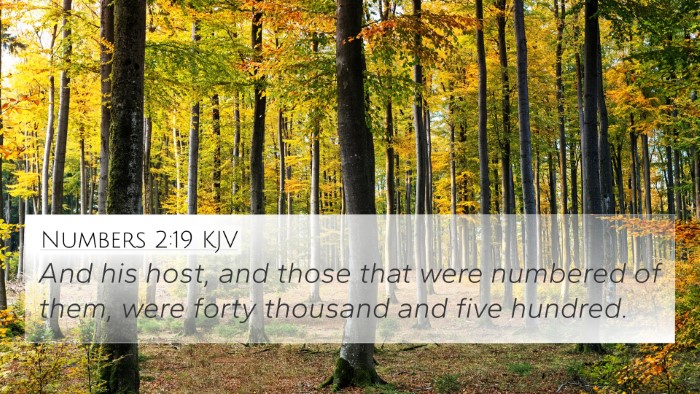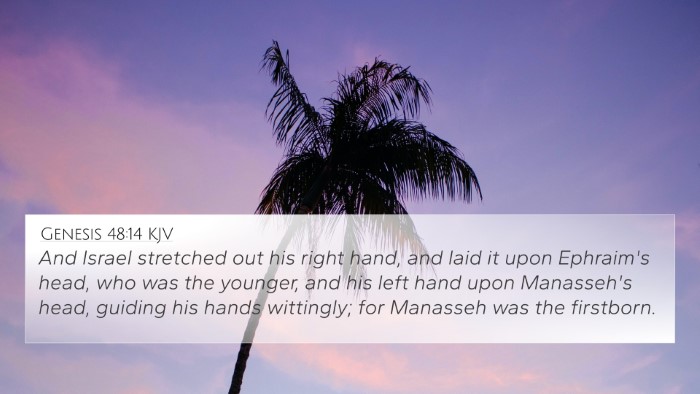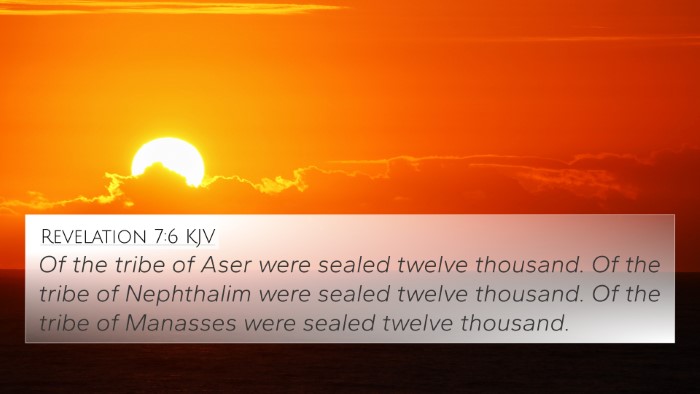Genesis 48:19 is a profound verse that encapsulates a significant moment in the biblical narrative, where Jacob, who is on his deathbed, blesses Joseph's two sons, Ephraim and Manasseh. This verse specifically addresses the future of these two sons, highlighting that although Ephraim is the younger, he will thrive and become a greater nation than Manasseh, who is the elder. The implications of this blessing extend far beyond the immediate context, shaping the destiny of the tribes that will descend from them.
This moment not only underscores the sovereignty of God in choosing the younger over the elder but also points to a broader theme of divine reversal present throughout Scripture. The idea that the less favored could be raised to a position of prominence challenges human expectations and societal norms.
Commentary Insights
- Matthew Henry's Commentary: Henry notes that Jacob's blessing reflects God's larger plan for the people of Israel. Ephraim, representing a multitude, foreshadows the eventual dominance of the tribe in the northern kingdom. Henry also highlights the aspect of spiritual legacy, suggesting that each blessing given has an eternal significance.
- Albert Barnes' Notes: Barnes emphasizes the implications of Ephraim's future, indicating that this blessing illustrates God's providential ordering of events. He suggests that this act of placing Ephraim before Manasseh serves as a reminder of God's choice and favor, often exercised contrary to human wisdom.
- Adam Clarke's Commentary: Clarke provides an in-depth exploration of the meaning of names. He explains that Ephraim means "fruitful," indicating God's ability to make His people fruitful even in seemingly unfavorable circumstances. Clarke also connects this moment with prophecies about the tribes and their eventual fates in the promised land.
Thematic Connections
The themes manifested in Genesis 48:19 can be cross-referenced with several other scripture passages to deepen understanding:
- 1 Chronicles 5:1-2: Discusses the leadership of the houses of Ephraim and Manasseh, reinforcing God’s choice of Ephraim.
- Matthew 1:2-16: Traces the genealogy of Jesus Christ, highlighting the significance of Ephraim by showcasing the lineage of David and ultimately Christ.
- Romans 9:12: Quotes the idea of "the elder shall serve the younger," linking New Testament themes back to Jacob's blessing.
- Hebrews 11:21: References Jacob's faith in blessing Joseph's sons, heralding their future without physical evidence.
- Micah 5:2: Relates to the prominence of Ephraim by mentioning Bethlehem's significant role, emphasizing God’s choice across generations.
- Jeremiah 31:9: Refers to Ephraim as a special child of God, drawing attention to God's affection for the tribes.
- Acts 7:14: Alludes to the growth of Joseph’s family, leading back to God's purpose in bringing Israel into Egypt.
Cross-Referencing the Blessing
Understanding Genesis 48:19 through a Bible cross-reference guide significantly enhances one’s grasp of biblical themes. Scholars and theologians utilize cross-referencing tools to explore similar principles in scriptures that enrich their studies:
- Using a Bible concordance can help locate verses that discuss blessings and their implications.
- Engaging in cross-reference Bible study facilitates a thematic analysis of God’s selection process.
- Employing a Bible reference resource can reveal insights into how Ephraim's blessing has set the stage for later biblical narratives.
Conclusion
Genesis 48:19 is rich with meaning, revealing God's mysterious and often surprising ways of guiding His chosen people. Through exploring this verse and its connections, one can affirm that God’s plans prevail despite human logic. As God's will unfolds, the connections between (and against) societal expectations become evident, calling believers to embrace the divine surprises woven throughout scripture.
Using tools for Bible cross-referencing can illuminate the narrative's depths, offering pathways for deeper study and understanding. The related verses offer insights into God's character and His purpose for the nations birthed from Jacob's family.
